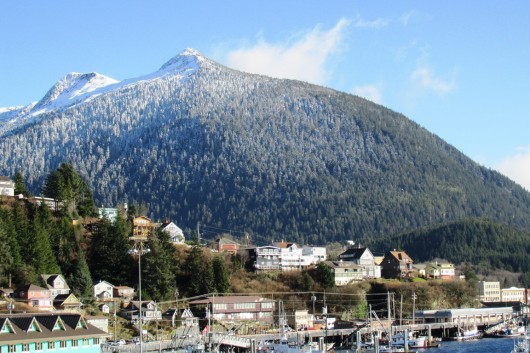
With little rain and ongoing cold weather, area lakes are hitting their lower limits. The City of Ketchikan has been burning diesel to power the community, and will continue to do so until wet weather returns to fill up the lakes.
The local utility is asking residents to conserve electricity, because the diesel generators are working hard to keep up with peak demand.
During a recent Ketchikan City Council meeting, Ketchikan Public Utilities Electric Division engineer Jeremy Bynum said the strongest demand for electricity is early mornings, when people are getting ready for work, and in the evenings.
“Take your showers (in the morning), those sorts of things, those things cause the loads to increase,” he said. “When you get home, doing your laundry, defer those things.”
Bynum suggested showering at a different time, or running a load of laundry later at night. According to a KPU announcement urging conservation, the peak times in the morning are 6 to 8 a.m. Evening power demand tends to peak between 8 and 9:30 p.m.
General conservation also is encouraged. Homeowners with electric heat, for example, could turn the thermostat down during the day when they’re not home. And Bynum said space heaters shouldn’t be left running all the time.
“Space heaters are meant for small spaces, very limited times while you’re home, maybe to warm your bedroom in the evening,” he said. “But we’ve had customers leaving them on throughout the day and they’re experiencing high bills because of that.”
Mayor Bob Sivertsen asked what would happen if the utility couldn’t meet demand. Bynum said at this point, that’s not anticipated. The utility has rented two extra diesel generators to help bridge the dry spell. But, if generators failed and temperatures dropped, he said, KPU might have to make some choices.
“But at this time, I wouldn’t say that we’re in a critical mode of having rolling blackouts,” he said. “I’ve heard lots of things on social media and around the community about rolling blackouts. We’re not at that level now. We’ve put a lot of effort into planning and doing contingency studies about where we’re at in our system and what we can do to prevent those things. We’ve been cautious on our end to be prepared.”
When KPU has to use diesel instead of hydroelectricity, customers are charged for the extra expense. The surcharge is spread out over six months.
Bynum said the surcharge currently is adding about 2 cents to KPU’s normal charge of 10.5 cents per kilowatt hour.
